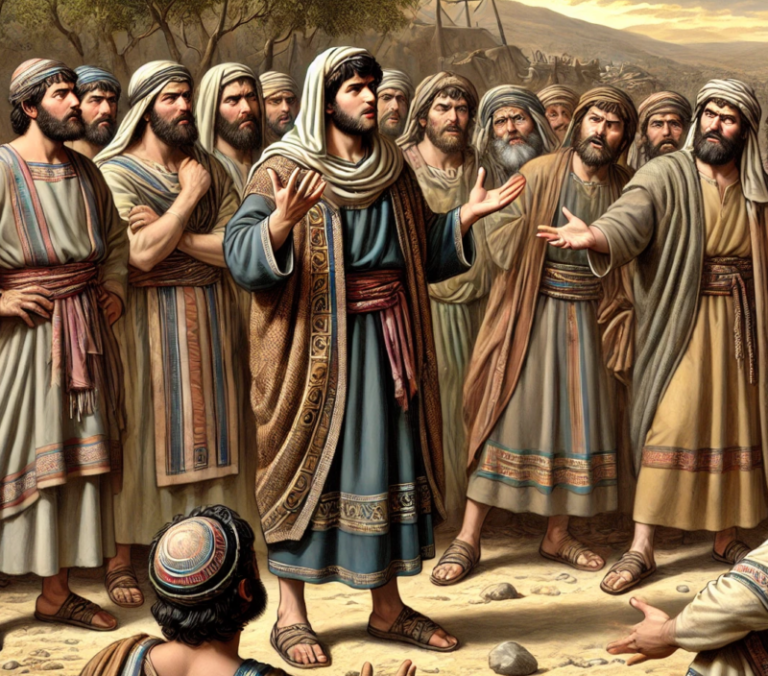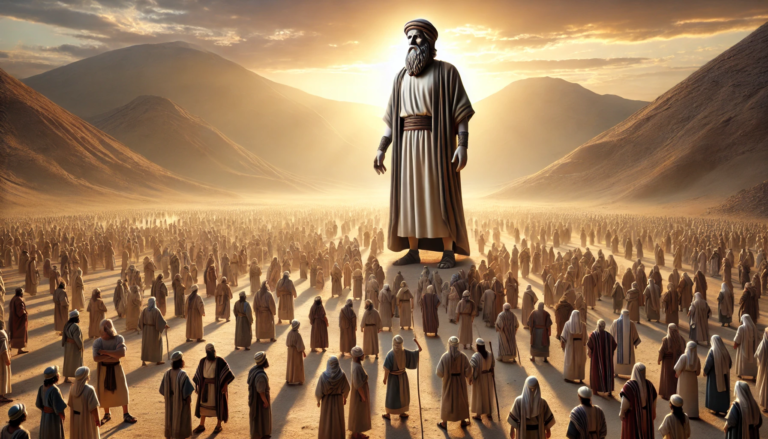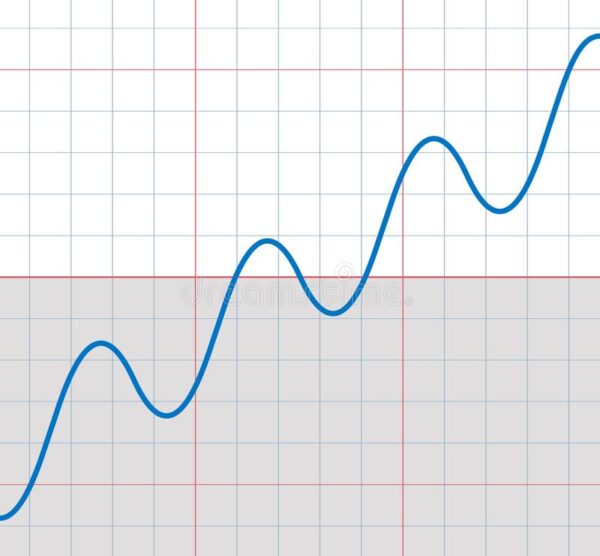Time Dilation, Mashiach and Patience

How come one year at age 60 seems to pass more quickly than one year at age 10? Some have suggested that the perception of time is related to the amount of time already experienced in one’s life. One year at age 10 is 10% percent of the total time experienced time in one’s life whereas one year at age 60 is less than 2% of the total experienced time. Since 2% is less than 10%, the brain (or maybe the mind) perceives the 60th year as passing more quickly than the 10th year. But is this all there is to it? Let’s ask a few more questions about the perception of time’s passage and see if we can get closer to the real issue. In general, why do elderly people display more patience than younger people? How come time is perceived as passing more quickly when we are busy than when we are inactive or bored? Where does patience come from?
What exactly is time? A textbook definition would be something like ‘time is the apparent progression of events from past to future’. At first glance this may seem to be a very useful definition, but if you think about it for more than a few seconds you will see that this definition doesn’t define anything. It just states that in a condition where change exists, time exists. And perhaps, in a condition where change does not exist, time does not exist. But this is just a correlation, not a definition. It doesn’t tell us anything about what time actually is. Is time a fundamental or a consequence? The short answer is that scientists really don’t know. It is still a hotly debated topic among physicists and since the subject hasn’t been adequately settled, we will leave it at that. Just be aware that, although we will be discussing time, we really don’t know what it is.
The Rambam writes about the Creator (Mishneh Torah Hilchot Yesodei haTorah 1:11): וְכֵיוָן שֶׁנִּתְבָּרֵר שֶׁאֵינוֹ גּוּף וּגְוִיָּה יִתְבָּרֵר שֶׁלֹּא יֶאֱרַע לוֹ אֶחָד מִמְּאֹרְעוֹת הַגּוּפוֹת לֹא חִבּוּר וְלֹא פֵּרוּד לֹא מָקוֹם וְלֹא מִדָּה לֹא עֲלִיָּה וְלֹא יְרִידָה וְלֹא יָמִין וְלֹא שְׂמֹאל וְלֹא פָּנִים וְלֹא אָחוֹר וְלֹא יְשִׁיבָה וְלֹא עֲמִידָה וְאֵינוֹ מָצוּי בִּזְמַן עַד שֶׁיִּהְיֶה לוֹ רֵאשִׁית וְאַחֲרִית וּמִנְיַן שָׁנִים וְאֵינוֹ מִשְׁתַּנֶּה שֶׁאֵין לוֹ דָּבָר שֶׁיִּגְרֹם לוֹ שִׁנּוּי (And since it is has been clear that He has no body or corporeal form, it is clear that none of the bodily functions pertain to Him: neither attachment nor separation, place nor measure, ascent nor descent, right nor left, front nor back, sitting nor standing. He is not found in time that there is a beginning, end or number of years. He does not change and there is nothing that can cause a change to Him). Notice that, according to the Rambam, time and change are correlated: where there is change there is time and where there is no change there is no time. So Hashem is ‘above’ time and ‘above’ change as the prophet wrote (Malachi 3:6): כִּי אֲנִי יְהֹוָה לֹא שָׁנִיתִי וְאַתֶּם בְּנֵי־יַעֲקֹב לֹא כְלִיתֶם (For I am Hashem, I have not changed; and you, the children of Yaakov, have not ceased to exist). Notice the aspects of change and time. This agrees with what is written in Likutei Moharan II:61:1: הַשֵּׁם יִתְבָּרַךְ הוּא לְמַעְלָה מֵהַזְּמַן כַּמּוּבָא וְזֶה הָעִנְיָן הוּא בֶּאֱמֶת דָּבָר נִפְלָא וְנֶעְלָם מְאֹד וְאִי אֶפְשָׁר לְהָבִין זֹאת בְּשֵׂכֶל אֱנוֹשִׁי (Hashem, may He be blessed, is above time [as is brought down in our holy writings], and truly, this subject is very wondrous and mysterious, and it is impossible to understand it with human intellect [seichal]). This is no great chidush [novel Torah teaching] for is written (Bereshit 1:1): בְּרֵאשִׁית בָּרָא אֱלֹקִים אֵת הַשָּׁמַיִם וְאֵת הָאָרֶץ (In the beginning, G-d created the heavens and the earth). In other words, time (beginning) and space (heavens and earth), i.e., what Einstein unified as a spacetime field, came into existence at the moment of creation. Therefore, ‘before’ there was a creation, there was neither space nor time, i.e. no spacetime.
But R' Nachman writes further there in Likutei Moharan: אַךְ דַּע שֶׁעִקָּר הַזְּמַן הוּא רַק מֵחֲמַת שֶׁאֵין מְבִינִים דְּהַיְנוּ מֵחֲמַת שֶׁשִּׂכְלֵנוּ קָטָן כִּי כָל מַה שֶּׁהַשֵּׂכֶל גָּדוֹל בְּיוֹתֵר הַזְּמַן נִקְטָן וְנִתְבַּטֵּל בְּיוֹתֵר (However, know that the essence of time emerges only because we do not understand, i.e., because of our limited [small] seichal, for the greater the seichal, the more time shrinks [contracts] and becomes nullified). This is an absolutely amazing chidush. We will do our best to explain this further, but for now, if we want a definition of time according to Breslov chasidut, it would be something like, ‘time is a non-absolute consequence of limited seichal. But, practically speaking, what does this mean?
First, we will briefly answer a question one might be having at this point. Hashem is above time, i.e., He has no relationship with the entire subject of time; yet, He created it. Creation of time implies a limitation in the Creator’s seichal. How can this be? After all, He is described as the Ein Sof, the Infinite itself, and as we learned, there is no such thing as a limitation when it comes to Hashem. This appears to be a contradiction. The answer to this paradox (which is discussed throughout our kabbalistic writings) is that one of the ‘first’ things Hashem did to create the heavens and the earth was to limit, contract or constrict Himself (so to speak) in a mystical process that is very difficult to grasp, which we call צמצום [tzimtzum]. So without getting too deep, there was a limitation of sorts in the Ein Sof which allowed for the creation of time (and space).
Now back to our main thread. In Einstein’s theory of special relativity, a clock that is moving relative to a stationary clock will be measured as ticking slower when compared to that stationary clock. This may seem a little strange at first, but it is not just a theoretical idea. It is a well-established scientific fact having been confirmed by experimentation. The faster an object is traveling, the more its time slows down relative to a stationary object. This is known as time dilation. At speeds much slower than the speed of light, time dilation, although measurable, is quite imperceptible to us. However, at speeds that are a large fraction of the speed of light, the effect can be quite dramatic. Therefore, if technology existed to allow for intergalactic travel in super-fast spaceships that could travel close to the speed of light, it would be possible for space-travelers to age one year and return to earth to discover that 100 years have elapsed.
What is amazing is that R' Nachman explained the notion of time dilation approximately 100 years before it was mathematically laid out by Einstein in his special theory of relativity. Their explanations are similar in that they pointed out the reality of time dilation but they differ in attributing it to different causes. Einstein showed that time dilation is a consequence of the relative velocity between two clocks: the greater that difference, the greater the time dilation. R' Nachman revealed a completely different dimension to time dilation by explaining that it is a consequence of the relative seichal between two individuals. He used the analogy of how someone can experience 70 years while dreaming only to discover upon waking that only 15 minutes passed, and that if someone were to appear to him in his dream and tell him that his so-called 70 years was really only 15 minutes, the dreamer would think that this dream-intruder was an idiot. The reason why someone can experience 70 years in a dream when outside the dream someone else is experiencing only 15 minutes is that our seichal leaves us when we sleep and dream, and returns to us upon waking. In the absence of seichal many years can pass in a dream. This is comparable to the people on earth who didn’t experience intergalactic travel in a super-fast spaceship. Upon waking the seichal returns and the person learns that only 15 minutes passed. In other words, the dreamer experiences a type of time dilation upon waking. This is comparable to Einstein’s space-travelers. But R’ Nachman’s teaching was just an analogy. His main point was to show that the same thing can happen to us, literally. He writes: וּבֶאֱמֶת בְּהַשֵּׂכֶל הַגָּבוֹהַּ לְמַעְלָה מִשִּׂכְלֵנוּ גַּם מַה שֶּׁנֶּחֱשָׁב אֶצְלֵנוּ לְשִׁבְעִים שָׁנָה מַמָּשׁ הוּא גַם־כֵּן רַק רֶבַע שָׁעָה אוֹ פָּחוֹת (In reality, with seichal on a higher plane than ours, that which we consider to be 70 years, literally is also only a quarter hour or less). And just as there are multiple speeds that an intergalactic spaceship could theoretically travel, so too there are different levels of seichal that people can develop. The higher the seichal, the more insignificant time becomes until a person can reach such a level of seichal that time itself ceases to have any meaning whatsoever and is completely nullified (as it was with Hashem before the tzimtzum).
This is the meaning of what Hashem says to Mashiach on the day of his coronation (Tehillim 2:7): בְּנִי אַתָּה אֲנִי הַיּוֹם יְלִדְתִּיךָ (You are My son; this day I have begotten you). The day of Mashiach’s coronation is the same day, literally, as the day he was brought into existence. How can this be? Although this verse seems very perplexing, as R' Nachman explains, it is true because of the great power of Mashiach’s seichal. Due to the vastness of Mashiach’s seichal, all of the time that will have passed from the creation of the world to that moment will be completely non-existent and nullified before him. Past, present and future will be one.
Herein lies the secret for developing patience. Hashem is extraordinarily patient, as is Mashiach, because they are both above time. Time dilation automatically leads to patience because impatience can only exist in the framework of time. As a side point, this explains why Mashiach continues to push off the final redemption. Time means nothing to Mashiach and thus, he’s super-patient. Like just Hashem, Mashiach does not want the wicked to be destroyed but rather for them to do teshuvah (Yechezkel 18:23): הֶחָפֹץ אֶחְפֹּץ מוֹת רָשָׁע נְאֻם אֲדֹנָ-י יֱיִ הֲלוֹא בְּשׁוּבוֹ מִדְּרָכָיו וְחָיָה (Do I desire the death of the wicked, says Adon-i G-d. Rather, that he would do teshuvah from his ways and live).
So if we want to become more patient people, let’s forget about the latest psychological techniques and tips. We need to develop our seichal. There are many ways to do that, but the best way is to study Gemara in depth.
Now the reader can go back to the beginning of the article and answer for himself the questions we asked there.






